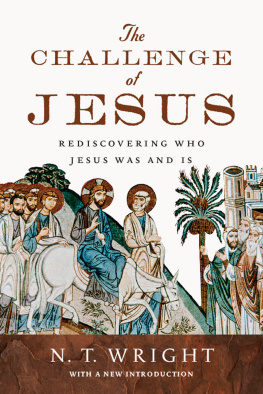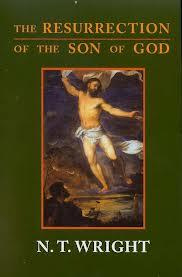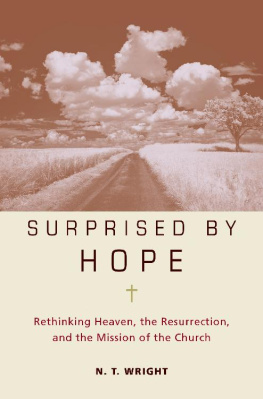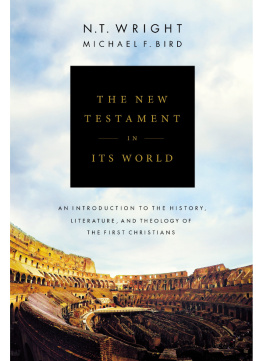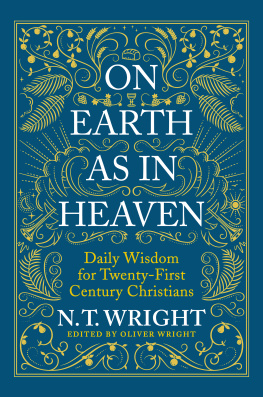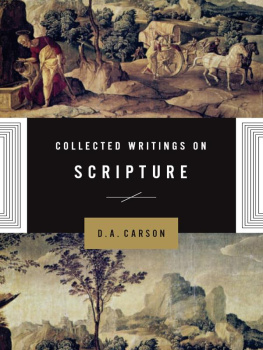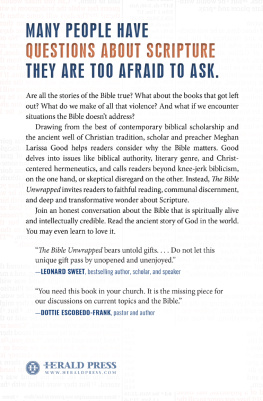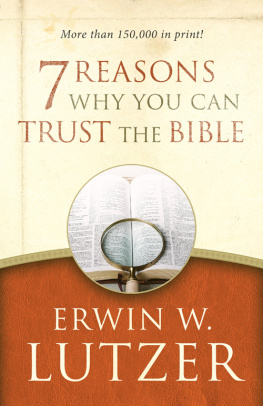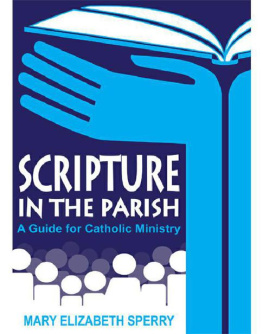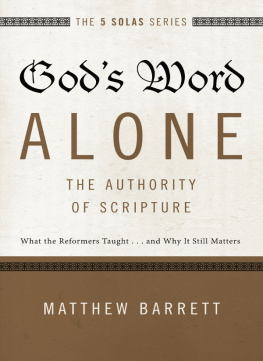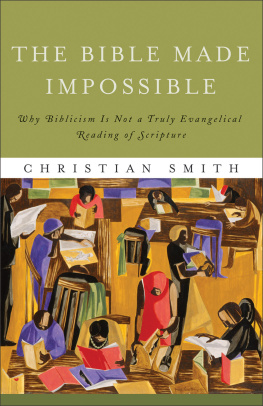Writing a book about the Bible is like building a sandcastle in front of the Matterhorn. The best you can hope to do is to catch the eye of those who are looking down instead of up, or those who are so familiar with the skyline that they have stopped noticing its peculiar beauty.
But clearly we have to do something to grab peoples attention and make them take a fresh look at some old questions. People used to talk about the battle for the Bible, and in the last generation we have seen the Bible used and abused, debated, dumped, vilified, vindicated, torn up by scholars, stuck back together again by other scholars, preached from, preached against, placed on a pedestal, trampled underfoot, and generally treated the way professional tennis players treat the ball. The more you want to win a point, the harder you hit the poor thing.
Taken as a whole, the church clearly cant live without the Bible, but it doesnt seem to have much idea of how to live with it. Almost all Christian churches say something in their formularies about how important the Bible is. Almost all of them have devised ways, some subtle, some less so, of ostentatiously highlighting some parts of the Bible and quietly setting aside other parts. Does this matter? If not, why not? If so, what should we do about it?
In response to those questions, let me return to the Matterhorn and the sandcastle. I have taken part in many discussions over the years about what the Bible is and what place it should occupy in Christian mission and thinking. As I have done so, I have increasingly come to the conclusion that there are many people outside and inside the church who need to be nudged to look up once more with fresh eyes, not just at the foothills, but at the crags and crevasses, at the cliffs and snowfields, and ultimately at the dazzling and dangerous summit itself. What that all means in terms of the Bible will, I hope, become clear as we proceed.
In particular, the question of how the Bible can be authoritative has echoed through a thousand recent debates in the life of the worldwide church. We have only to mention the question of sexual ethics to see at once how important, and yet how difficult, the question of biblical authority can be. We have only to think of the so-called Jesus wars in North America to see how much controversy can still be generated by the question of whether the four gospels in the New Testament are in any sense reliable as presentations of who Jesus was and why he died. And we need only mention Dan Browns runaway bestseller The Da Vinci Code to remind ourselves that questions about how Christianity began, and whether the New Testament can be trusted on that point, are clearly issues on which our whole culture can still be thrown into turmoil.
And thats only the New Testament. What about the Oldthe Hebrew scriptures, as they are sometimes called? Here we still find huge misunderstandings. Some Christians seem to regard the whole Bible, from Genesis to Revelation, as equally authoritative and valideven though Jesus himself, according to the gospels themselves, seems to have set aside the food laws and posed severe questions about the observance of the sabbath; even though Paul is shrill in his insistence that the ancient command to circumcise male children is no longer relevant for followers of Jesus; and even though the Letter to the Hebrews makes it abundantly clear that the detailed regulations about the Temple and the sacrificial system have been made redundant by the single sacrifice of Christ, the great High Priest. Other Christians, meanwhile, have taken Pauls saying that Christ is the end of the Law as giving them cheerful permission to ignore anything and everything in the Old Testament. Is there a way through this problem?
Having made the Bible the focus of my own professional work for many years, I have become convinced that we are asking at least some of the questions in the wrong way. In an earlier article, I explored one of the central questions: How can what is mostly a narrative text be authoritative? (This article, How Can the Bible Be Authoritative? was published in Vox Evangelica 21, 1991, 732, and, like some other things I have written over the years, is now available at www.ntwrightpage.com.) I then developed my argument in terms of seeing the biblical story as a five-act play, with ourselves called to improvise the concluding act, in chapter 5 of The New Testament and the People of God (Fortress Press, 1992). This present little book builds on those two earlier attempts and tries to set out the question in a new way.
I have tried, in particular, to face head-on the question of how we can speak of the Bible being in some sense authoritative when the Bible itself declares that all authority belongs to the one true God and that this is now embodied in Jesus himself. The risen Jesus, at the end of Matthews gospel, does not say, All authority in heaven and on earth is given to the books you are all going to write, but All authority in heaven and on earth is given to me. This ought to tell us, precisely if we are taking the Bible itself as seriously as we should, that we need to think carefully what it might mean to think that the authority of Jesus is somehow exercised through the Bible. What would that look like in practice? In particular, what happens when we factor in Jesuss own redefinition of what authority itself might mean?



